
Maurice Ernest Gibb was a British musician and songwriter. He achieved worldwide fame as a member of the Bee Gees pop group. Although his elder brother Barry Gibb and twin brother Robin Gibb were the group's main lead singers, most of their albums included at least one or two songs featuring Maurice's lead vocals, including "Lay It on Me", "Country Woman" and "On Time". The Bee Gees are one of the most successful pop-rock groups of all time.

Cucumber Castle is the seventh studio album by the Bee Gees, released in April 1970. It was produced by Barry Gibb, Maurice Gibb, and Robert Stigwood. It consists of songs from their television special of the same name, which was named after a song on their 1967 album Bee Gees' 1st. Cucumber Castle is the only Bee Gees album not to feature any recorded contributions from Robin Gibb, as he had left the group before the album was recorded.
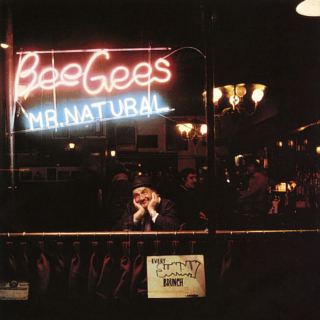
Mr. Natural is the twelfth studio album by the Bee Gees, released in 1974. It was the first Bee Gees release produced by Arif Mardin, who was partially responsible for launching the group's later major success with the follow-up album Main Course. The album's rhythm and blues, soul, funk, and hard rock sounds initiated the group's reinvention as a disco and blue-eyed soul act, which would solidify on subsequent albums. However, Barry Gibb has said that the album was "whiter" than Main Course. The cover photograph was taken at 334 West 4th Street, Greenwich Village, New York City by Frank Moscati, which is today known as The Corner Bistro tavern.
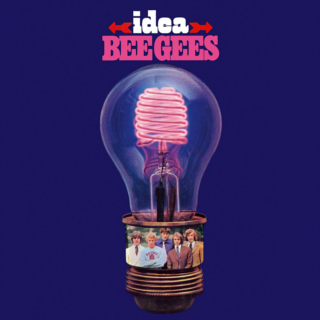
Idea is the fifth album by the Bee Gees. Released in August 1968, the album sold over a million copies worldwide. The album was issued in both mono and stereo pressings in the UK. The artwork on the Polydor release designed by Wolfgang Heilemann featured a "beehive" neon lightbulb with a group photo in its base, while the North American ATCO release designed by Klaus Voormann featured a composite head made from each band member. It was their third internationally released album – the first two albums being released only in the Australian market.
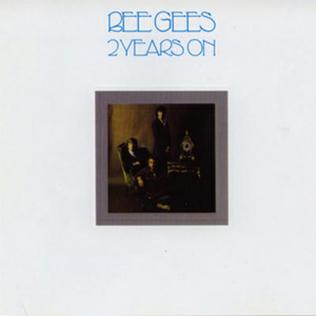
2 Years On is the eighth studio album by the Bee Gees, which reached No. 32 on the US charts. Released in 1970, the album saw the return of Robin Gibb to the group after an earlier disagreement and subsequent split following Odessa. 2 Years On was the first album with drummer Geoff Bridgford, who remained a full-time member of the group until 1972 although he was not pictured on the sleeve. The best-known track is "Lonely Days". Released as the first single by the reunited brothers, it charted high in the US, but only reached No. 33 in the United Kingdom.

To Whom It May Concern is the tenth album by the Bee Gees. Released in October 1972, it is the follow-up to, and continues the melancholic and personal sound of its predecessor, Trafalgar. The album was recognised as "a farewell to the old Bee Gees" as the album marked the end of an era for the group in several ways: it was their last album to be recorded solely at IBC Studios, in London, their last with conductor and arranger Bill Shepherd, who had guided them since 1967, and their last under their first contract with Robert Stigwood. Some of the songs were old ones finished or rewritten for the occasion.

Life in a Tin Can is the Bee Gees' eleventh studio album, released in January 1973.
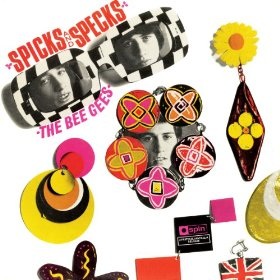
Spicks and Specks is the second studio album by the Bee Gees. It was released in November 1966, on Spin. Primarily written by Barry Gibb, the album includes the first Robin Gibb composition "I Don't Know Why I Bother With Myself" and a Maurice Gibb composition "Where Are You".
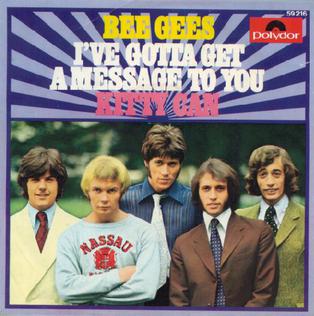
"I've Gotta Get a Message to You" is a song by the Bee Gees. Released as a single in 1968, it was their second number-one hit in the UK Singles Chart, and their first US Top 10 hit. Barry Gibb re-recorded the song with Keith Urban for his 2021 album Greenfields.

Bee Gees' 1st is the third studio album by the Bee Gees, and their first international full-length recording after two albums distributed only in Australia and New Zealand. Bee Gees' 1st was the group's debut album for the UK Polydor label, and for the US Atco label. Bee Gees 1st was released on 14 July 1967 in the UK. On 9 August it entered the UK charts; on that same day, the album was released in the US, and it entered the US charts on 26 August.

Here at Last... Bee Gees... Live is the first live album by the Bee Gees. It was recorded on December 20, 1976 at the LA Forum and was released in May 1977 by RSO Records. It reached No. 8 in the US, No. 8 in Australia, No. 1 in New Zealand, and No. 2 in Spain.

"Run to Me" is a song by the Bee Gees, the lead single from the group's album To Whom It May Concern (1972). The song reached the UK Top 10 and the US Top 20.

"Every Christian Lion Hearted Man Will Show You" is a song written by Barry, Robin & Maurice Gibb released by the Bee Gees in 1967 on their album Bee Gees' 1st. It was released as the B-side to "Holiday" in the US, Australia and Canada.
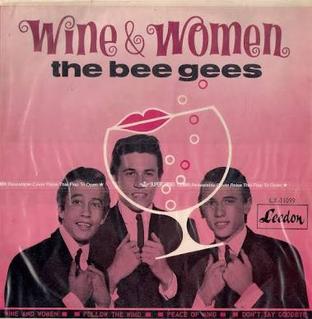
"Wine and Women" is a song written by Barry Gibb, and released by Barry Gibb and the Bee Gees in September 1965 on Leedon Records in Australia. The song's B-side was Follow the Wind. The single reached #19 in Australia, marking the Bee Gees' international chart debut. They achieved this by getting as many of their fans as possible to buy enough copies to get the song into the charts at #35 and, thus, to the attention of disc-jockeys.
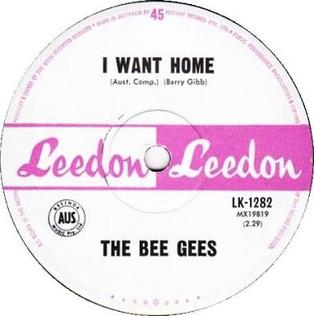
"I Want Home" is a song by the Bee Gees, written by Barry Gibb and released as a single in Australia in early 1966, backed with "Cherry Red". Their last single on Leedon had not been a hit, so the credit "Barry Gibb and the Bee Gees" used on the last several discs now reverted to simply "Bee Gees". Neither song appeared on any Bee Gees album until the 1967 compilation album, Turn Around, Look At Us, but both were featured on Brilliant From Birth the 1998 anthology of the group's Australian recordings.

New York Mining Disaster 1941 was released on Spin Records by the Bee Gees in 1967. It was their second EP and, like their first EP, was released only in Australia. All of the songs on this EP were originally released on their third LP Bee Gees' 1st.

"You Wouldn't Know" is a song written by Barry Gibb which was recorded by the Bee Gees and released as the B-side of their version of "Everyday I Have to Cry" and later included on the album The Bee Gees Sing and Play 14 Barry Gibb Songs (1965). The album of the same name was released in Europe by Tring Records and features the Bee Gees songs from 1963 to 1966.
"Follow the Wind" is a song by Barry Gibb and the Bee Gees. Written by Barry Gibb and produced by Bill Shepherd, it was released as the B-side of "Wine and Women" which charted in Australia. It was later included on The Bee Gees Sing and Play 14 Barry Gibb Songs (1965). It was one of the folk rock songs on the album, the others being "I Don't Think It's Funny", "And the Children Laughing", and "I Was a Lover, a Leader of Men".

Trevor Gordon Grunnill was a British-Australian singer, songwriter and musician. He was one half of the late-1960s musical duo the Marbles, along with Graham Bonnet, whose biggest hit was the UK No. 5 charting track "Only One Woman", and their minor UK hit "The Walls Fell Down".
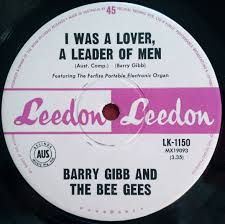
"I Was a Lover, a Leader of Men" is a single released in November 1965, recorded by the Bee Gees, and written by Barry Gibb. In Australia, the B-side was "And the Children Laughing". It is also the first track of the Bee Gees' first album, The Bee Gees Sing and Play 14 Barry Gibb Songs. This song won Barry a songwriting award.


















